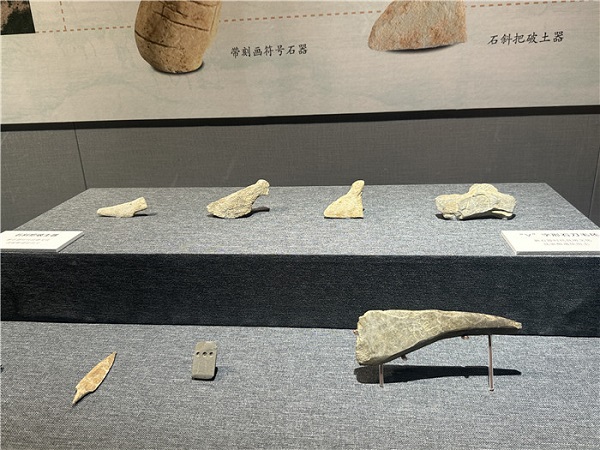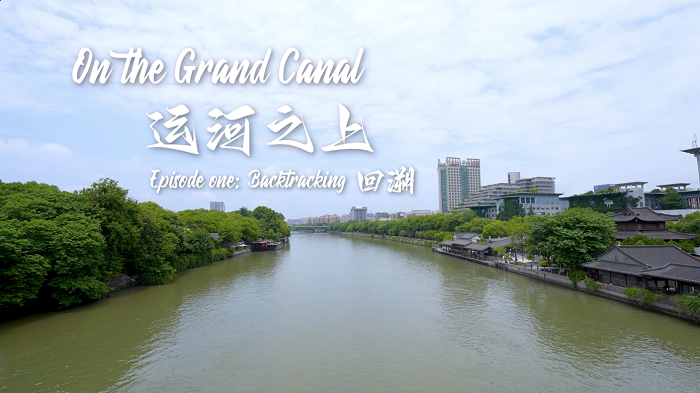China steps up anti-corruption efforts and promotes full, rigorous Party self-governance

Copies of a booklet from the Central Commission for Discipline Inspection are seen on a table during a news conference in Beijing, China, January 15, 2016. /CFP
China has been persistently deepening its anti-corruption efforts, taking steady steps forward and maintaining a strong stance against corruption.
Following the 20th National Congress of the Communist Party of China (CPC) in 2022, the country's anti-corruption efforts have maintained their momentum. In 2023, China's disciplinary authorities punished 610,000 individuals, including 49 provincial or ministerial-level officials, according to a statement released by the CPC Central Commission for Discipline Inspection and the National Commission of Supervision.
Discipline inspection and supervisory agencies nationwide received over 3.45 million complaints and tip-offs last year, and handled over 1.73 million pieces of evidence related to wrongdoing. A total of 626,000 disciplinary violation cases were filed for investigation, the statement said.
Introduced by the Political Bureau of the CPC Central Committee, the Party's eight-point decision on improving work conduct aims to improve the work style of Party and government officials. Since its adoption in December 2012, the Party has made significant efforts to rectify undesirable work styles such as formalism, bureaucratism, hedonism and extravagance.
In 2023, a total of 107,547 cases of violating the eight-point decision on improving Party conduct were investigated. According to the website of the CPC Central Commission for Discipline Inspection and the National Commission of Supervision, 153,662 individuals involved in these cases were reprimanded and educated or punished.
To effectively enforce strict discipline among officials, the CPC has established a comprehensive mechanism that includes goal-setting, results evaluation and education.
At the end of each year, the Political Bureau of the CPC Central Committee holds meetings for criticism and self-criticism to review the implementation of the eight-point code on improving Party and government conduct. The Party also regularly launches education campaigns to inform members about the importance of improving conduct.
Meanwhile, China has intensified efforts in key sectors and expanded coverage to safeguard high-quality economic and social development. The country is ramping up its fight against corruption in finance, state-owned enterprises, energy, medicine, and infrastructure construction – sectors where power is concentrated, capital is abundant, and resources are rich.
For instance, last November, the CPC Central Commission for Discipline Inspection and the National Commission of Supervision announced that Zhang Hongli, former vice president of the Industrial and Commercial Bank of China, was under investigation for suspected severe violations of Party discipline and laws.
Enhanced mechanisms for improvement on CPC self-governance
Since the 18th CPC National Congress, a raft of regulations on Party discipline have been issued. These include the Code of Conduct for Intra-party Political Life under New Circumstances, the Regulations on Internal Oversight, and the guidelines for conducting simultaneous investigations on bribe-taking and bribe-giving.
In March 2018, the Supervision Law was adopted at the first session of the 13th National People's Congress, the national legislature. That same month, a network of supervisory commissions at the national, provincial, prefectural, and county levels was established. This reform of the national supervision system marks a milestone in the Party's anti-corruption campaign.
In December 2023, the CPC Central Committee released the revised Regulations on CPC Disciplinary Action, urging all localities and departments to implement them faithfully. This marks the third revision since the 18th CPC National Congress in 2012, following previous updates in 2015 and 2018.
According to the circular, the revisions were made to address specific challenges faced by a large party and to improve systems for exercising full and rigorous self-governance. It emphasizes a more targeted approach to disciplinary actions, specifically addressing arbitrary decision-making, rigid enforcement, and the imposition of undue burdens in grassroots work.
International anti-corruption cooperation advances
International fugitive repatriation and asset recovery represent a new front in the fight against corruption in the new era.
China has launched its "Sky Net" campaign since April, 2015, aimed at tracking down fugitives involved in graft, preventing corrupt officials from fleeing abroad, and recovering illicit gains. In the first 11 months of last year, China repatriated 1,278 fugitives, including 140 Party members and government officials, recovering 2.91 billion yuan ($406.7 million) of embezzled funds in the process, according to the Central Commission for Discipline Inspection and the National Supervisory Commission.
In March this year, the operation of "Sky Net" for 2024 was launched, further advancing an integrated mechanism for pursuing fugitives, preventing escape, and retrieving stolen assets in a comprehensive manner.
China also actively participates in and contributes to global anti-corruption efforts. It has been involved in building an anti-corruption partnership network and has played a vital role in developing the international anti-corruption governance system.
New progress has been made in international anti-corruption cooperation, including the adoption of the Beijing Declaration on Fighting Corruption at the APEC meetings in 2014 and the G20 High-Level Principles on Cooperation on Persons Sought for Corruption and Asset Recovery at the G20 Hangzhou Summit in 2016.



